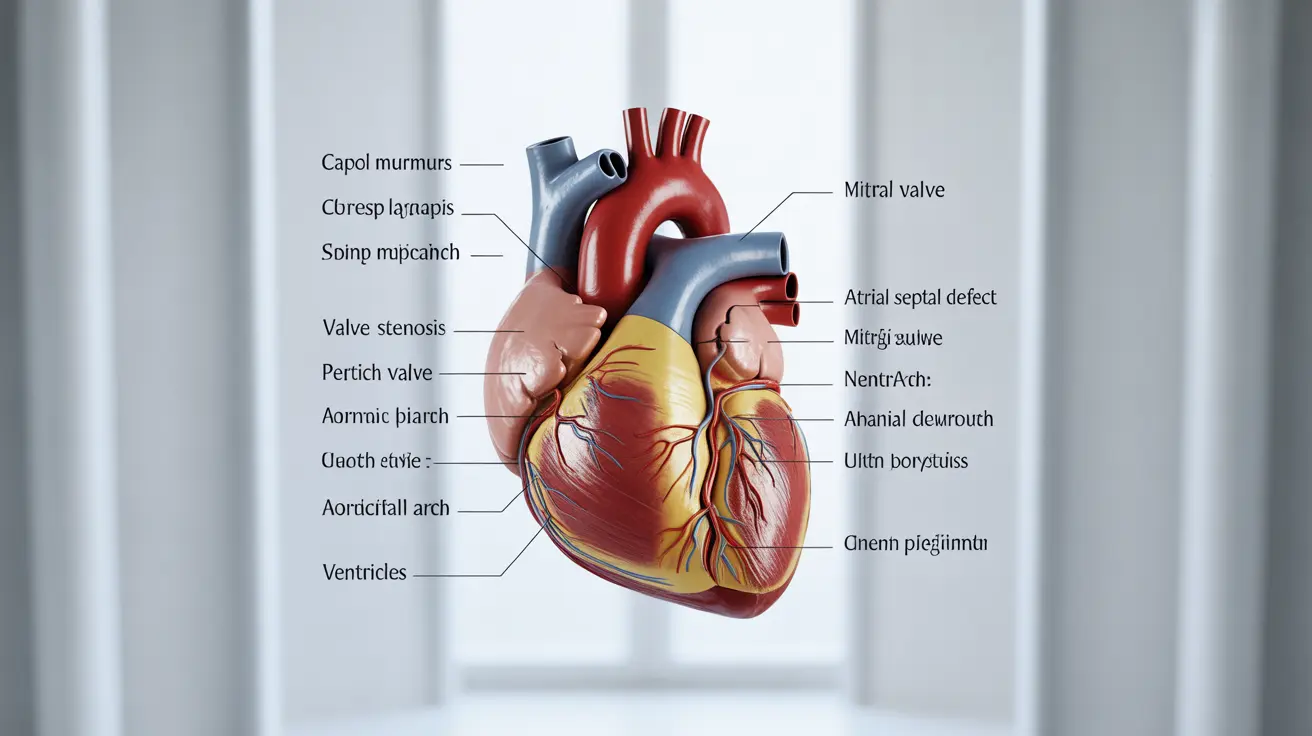Heart murmurs, those extra or unusual sounds heard during heartbeats, are a common cardiac finding that affects people of all ages. While some heart murmurs are harmless, others may indicate underlying heart conditions. Many people wonder about the role genetics plays in their development and whether these conditions can be passed down through families.
Understanding the relationship between heart murmurs and genetics is crucial for both patients and healthcare providers, as it can impact diagnosis, monitoring, and treatment approaches. This comprehensive guide explores the genetic aspects of heart murmurs and provides essential information about their causes, diagnosis, and management.
Understanding Heart Murmurs and Their Types
Heart murmurs are classified into two main categories: innocent (physiologic) murmurs and abnormal (pathologic) murmurs. Innocent murmurs occur in normal, healthy hearts and typically don't require treatment. Abnormal murmurs, however, may indicate underlying structural heart problems or conditions that need medical attention.
Innocent Heart Murmurs
Innocent heart murmurs are common, especially in children, and usually resolve on their own as the child grows. These murmurs can be caused by:
- Rapid blood flow through a normal heart
- Physical activity or exercise
- Fever or anemia
- Pregnancy (in adults)
Abnormal Heart Murmurs
Abnormal heart murmurs may be caused by various structural heart conditions, including:
- Valve abnormalities
- Holes in the heart walls
- Cardiac muscle problems
- Blood vessel conditions
The Genetic Connection
Some heart conditions that cause murmurs do have genetic components. Certain structural heart defects, valve abnormalities, and cardiac conditions can run in families. These inherited conditions may include:
- Hypertrophic cardiomyopathy
- Marfan syndrome
- Congenital heart defects
- Valve disorders
Diagnosis and Detection
Healthcare providers use several methods to evaluate heart murmurs and determine their cause:
- Physical examination with a stethoscope
- Echocardiogram
- Electrocardiogram (ECG)
- Chest X-rays
- Cardiac MRI or CT scan
Treatment Approaches
Treatment for heart murmurs depends entirely on the underlying cause. Many innocent murmurs require no treatment at all. For abnormal murmurs, treatment options may include:
- Regular monitoring
- Medications to manage underlying conditions
- Surgical repair of heart defects
- Valve replacement or repair
- Lifestyle modifications
Risk Factors and Prevention
Several factors can increase the risk of developing heart murmurs or related conditions:
- Family history of heart conditions
- Certain medical conditions during pregnancy
- High blood pressure
- Infections affecting the heart
- Age-related valve changes
Frequently Asked Questions
Are heart murmurs genetic, and can they run in families?
Yes, some heart murmurs can have genetic components, particularly those caused by structural heart defects or inherited cardiac conditions. While not all heart murmurs are inherited, certain conditions that cause them can run in families, making it important to share family medical history with healthcare providers.
What are the main differences between innocent and abnormal heart murmurs?
Innocent heart murmurs occur in normal, healthy hearts and typically don't cause symptoms or require treatment. Abnormal heart murmurs are caused by underlying heart conditions, may cause symptoms like fatigue or shortness of breath, and often require medical attention or treatment.
How do doctors diagnose the cause of a heart murmur, and what tests are involved?
Doctors initially use a stethoscope to listen to heart sounds during a physical examination. They may then order additional tests such as echocardiograms, ECGs, chest X-rays, or cardiac MRIs to determine the murmur's cause and severity.
When does a heart murmur require treatment, and what are the treatment options?
Treatment is necessary when a heart murmur is abnormal and caused by an underlying heart condition. Treatment options range from monitoring and medications to surgical procedures, depending on the specific cause and severity of the condition.
What are the most common risk factors and symptoms associated with heart murmurs?
Common risk factors include family history, age, certain medical conditions, and pregnancy. While innocent murmurs typically cause no symptoms, abnormal murmurs may be accompanied by shortness of breath, chest pain, fatigue, dizziness, or bluish skin color.




